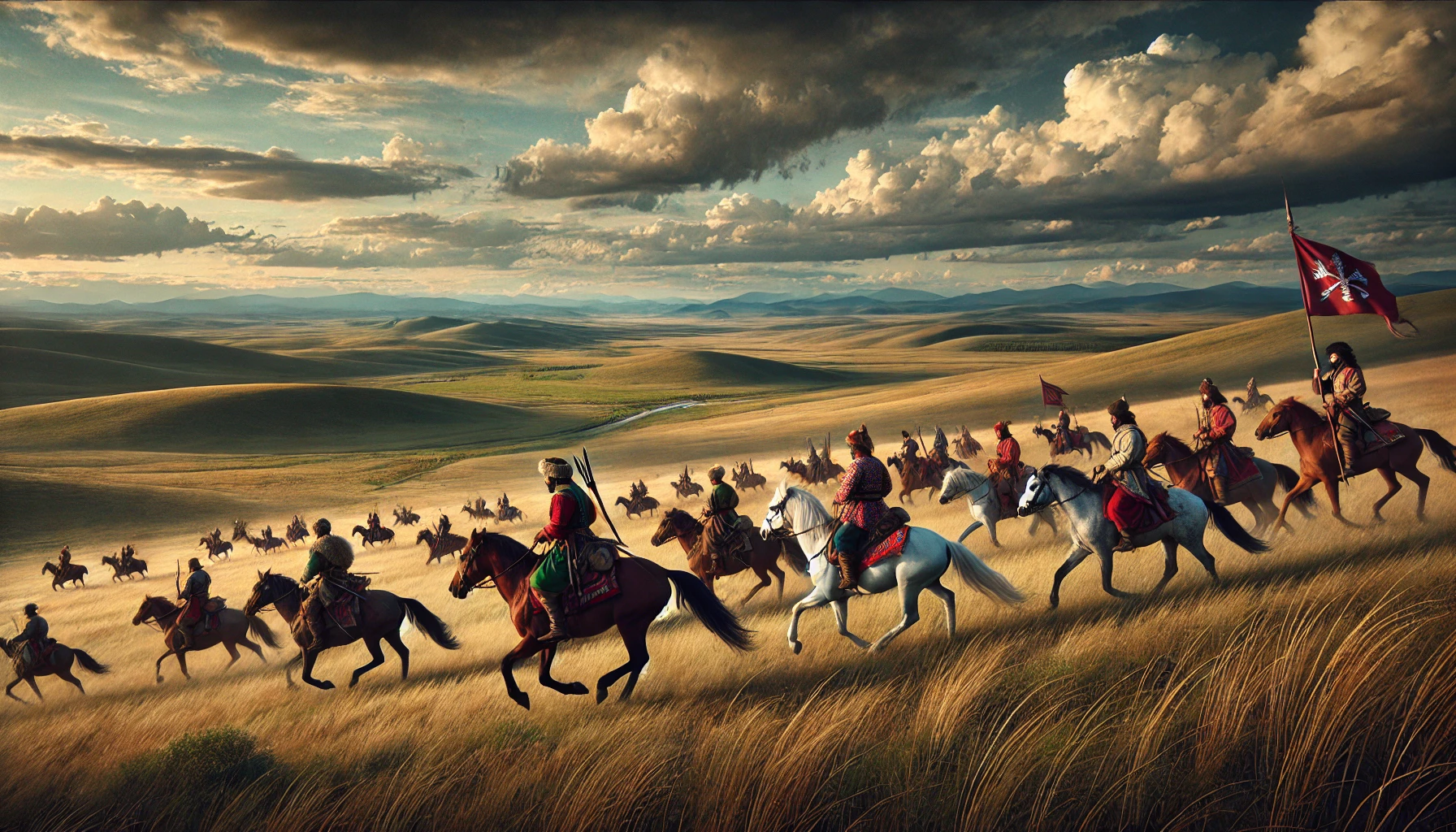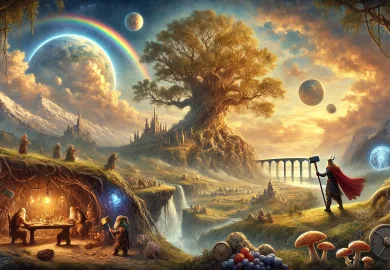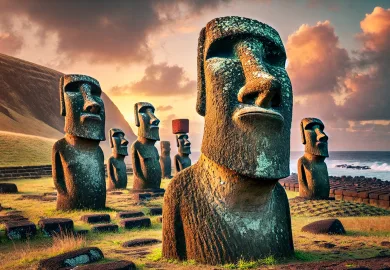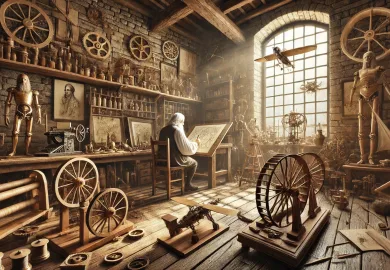
Disclaimer: This content was generated using AI. While I strive for accuracy, I encourage readers to verify important information. I use AI-generated content to increase efficiencies and to provide certain insights, but it may not reflect human expertise or opinions.
The Cossacks, a formidable group of East Slavic people, have long captured the imagination of historians, writers, and artists. Known for their warrior spirit, unique cultural practices, and distinct way of life, the Cossacks played a significant role in the history of Eastern Europe. This article explores the fascinating world of the Cossacks, delving into their origins, traditions, and lasting legacy.
Origins of the Cossacks: A Journey Through Time
The Cossacks are believed to have emerged in the 14th century, primarily in the regions that are now Ukraine and southern Russia. Their name is derived from the Turkic word “qazaq,” which means “free man” or “adventurer.” This term aptly describes the early Cossacks, who were runaway serfs, outlaws, and adventurers seeking freedom on the fringes of the Polish-Lithuanian Commonwealth, the Ottoman Empire, and Muscovy.
These early Cossack communities formed along the Dnieper, Don, and Volga rivers, where they lived independently, often acting as mercenaries or engaging in raiding expeditions against the surrounding powers. Their warrior ethos and democratic governance set them apart from the feudal societies of the time. Unlike the rigid hierarchies of Europe, Cossack communities were known for their egalitarianism, where leaders were elected, and decisions were made collectively.
As their influence grew, the Cossacks became more organized, eventually forming powerful hosts such as the Zaporizhian Sich in Ukraine and the Don Cossack Host in Russia. These hosts played crucial roles in regional conflicts, acting as both defenders and aggressors in the volatile political landscape of Eastern Europe.
The Warrior Culture of the Cossacks: A Tradition of Valor
Cossack culture is deeply rooted in their identity as warriors. From a young age, Cossack boys were trained in the arts of war, learning to ride horses, shoot arrows, and wield swords with exceptional skill. The horse was central to Cossack life, symbolizing freedom, mobility, and power. Cossacks were renowned for their cavalry tactics, often employing hit-and-run strategies that left their enemies bewildered.
The Cossack military code emphasized bravery, loyalty, and honor. Battles were not just fought for territorial gain but also as a means of proving one’s worth. The Cossacks’ fierce independence was reflected in their refusal to submit to any external authority unless it was on their own terms. This defiance often led to conflicts with neighboring states, but it also earned them a reputation as formidable warriors.
Their distinctive dress, including the iconic fur hat and colorful tunics, was not only practical for battle but also a symbol of their cultural identity. The Cossack sabre, or shashka, became a symbol of their martial prowess, passed down through generations as a treasured heirloom.
While their warrior culture was central to their identity, the Cossacks were not merely a society of fighters. They also engaged in farming, fishing, and trade, building prosperous communities that thrived on the fringes of empires. However, it was their role as warriors that left the most significant mark on history, influencing military tactics and inspiring generations of soldiers across Europe.
Cossack Governance: Democracy on the Steppes
One of the most remarkable aspects of Cossack culture was their system of governance, which was democratic and collective. Unlike the monarchies and feudal systems of their neighbors, the Cossacks organized themselves into hosts, each governed by a council known as the “Rada.” Every member of the host had the right to participate in the Rada, where decisions were made through open debate and majority vote.
At the head of the Cossack host was the “Ataman,” an elected leader who held significant power but was also accountable to the Rada. The Ataman’s authority was not absolute; he could be replaced if the Rada deemed his leadership unsatisfactory. This system of checks and balances ensured that power remained in the hands of the community rather than a single individual.
The Cossack hosts were also known for their strict codes of conduct, which were enforced by the community. Theft, cowardice, and treason were met with severe punishment, while bravery, loyalty, and service to the host were rewarded. This collective approach to governance fostered a strong sense of unity and loyalty among the Cossacks, enabling them to resist external pressures and maintain their independence.
Cossack democracy extended beyond the battlefield and into their daily lives. Land was held in common, and resources were shared according to need. This communal way of life helped the Cossacks survive in the harsh environments of the steppes and fostered a sense of equality that was rare in the medieval world.
Cossack Culture and Traditions: A Vibrant Legacy
The Cossacks were not only warriors but also bearers of a rich cultural heritage that has left a lasting impact on the regions they inhabited. Their traditions, music, dance, and folklore continue to influence the cultures of Ukraine, Russia, and beyond.
Music played a central role in Cossack culture. Their songs, often accompanied by the bandura, a traditional stringed instrument, were expressions of their joys, sorrows, and aspirations. Cossack songs ranged from epic ballads recounting heroic deeds to soulful laments mourning lost comrades. These songs were passed down orally through generations, preserving the history and values of the Cossacks.
Dance was another vital aspect of Cossack culture. The “Hopak,” often referred to as the Cossack dance, is a lively and energetic performance that showcases the strength, agility, and spirit of the Cossack people. Originally a male-only dance, the Hopak has evolved over time and is now performed by both men and women, symbolizing the enduring legacy of Cossack traditions.
Cossack folklore is rich with tales of heroism, loyalty, and adventure. These stories, often centered around legendary figures like Taras Bulba, reflect the values and beliefs of the Cossacks. They emphasize the importance of honor, bravery, and the struggle for freedom, themes that resonate deeply in the collective memory of the Cossack descendants.
Religion also played a significant role in Cossack culture. While the Cossacks were primarily Orthodox Christians, their faith was often intertwined with traditional beliefs and practices. They held deep reverence for saints, particularly Saint Nicholas, who was considered the protector of Cossacks. Religious rituals, such as blessing weapons before battle or offering prayers for victory, were integral to Cossack life.
The legacy of Cossack culture can still be seen today in the customs and traditions of their descendants. Festivals, reenactments, and cultural events celebrating Cossack heritage are held in Ukraine and Russia, keeping their history and traditions alive for future generations.
The Enduring Legacy of the Cossacks: Influence and Impact
The influence of the Cossacks extends far beyond their historical role as warriors and defenders of the steppes. Their legacy is evident in the cultural, political, and social landscapes of Eastern Europe.
In Ukraine, the Cossacks are celebrated as national heroes and symbols of resistance against oppression. The Ukrainian national identity is deeply intertwined with the history of the Cossacks, who are seen as champions of freedom and independence. The Cossack spirit of defiance and resilience has inspired countless movements for Ukrainian sovereignty, from the fight against Polish and Russian domination to the modern struggle for independence.
In Russia, the Cossacks have been both revered and mistrusted. While they played a crucial role in the expansion of the Russian Empire, particularly in Siberia and the Caucasus, their fiercely independent nature often put them at odds with the central authorities. Nevertheless, the Cossacks were instrumental in shaping the Russian frontier, and their contributions to Russian military traditions are still recognized today.
The Cossacks also left a significant mark on the military tactics of Europe. Their use of light cavalry, guerrilla warfare, and mobile tactics influenced the development of modern military strategies. The legacy of Cossack warfare can be seen in the cavalry traditions of several European armies, which adopted similar tactics in the 18th and 19th centuries.
In literature and art, the Cossacks have been immortalized as symbols of freedom, bravery, and adventure. Writers like Nikolai Gogol and Leo Tolstoy, and painters like Ilya Repin, have captured the essence of Cossack life in their works, preserving their legacy for future generations. These artistic portrayals have contributed to the romanticized image of the Cossacks that endures in popular culture today.
Despite the passage of time, the Cossacks remain a potent symbol of resistance, independence, and cultural pride. Their legacy continues to inspire not only the descendants of Cossacks but also people around the world who admire their indomitable spirit and unwavering commitment to freedom.
Conclusion: The Timeless Spirit of the Cossacks
The Cossacks, with their unique blend of warrior ethos, democratic governance, and vibrant cultural traditions, have left an indelible mark on the history of Eastern Europe. Their story is one of resilience, defiance, and a relentless pursuit of freedom, values that continue to resonate in the modern world.
As we look back on the legacy of the Cossacks, it is clear that their influence extends far beyond the battlefields of the past. They have shaped the identities of nations, inspired artistic masterpieces, and left behind a cultural heritage that is still celebrated today. The Cossacks may have emerged from the fringes of empires, but their legacy has become central to the history and culture of the regions they once called home.
In a world where the struggle for freedom and independence is ever-present, the story of the Cossacks serves as a powerful reminder of the enduring human spirit and the timeless quest for liberty. Their legacy is not just a chapter in history but a living testament to the power of resilience, courage, and the unyielding desire for freedom.








